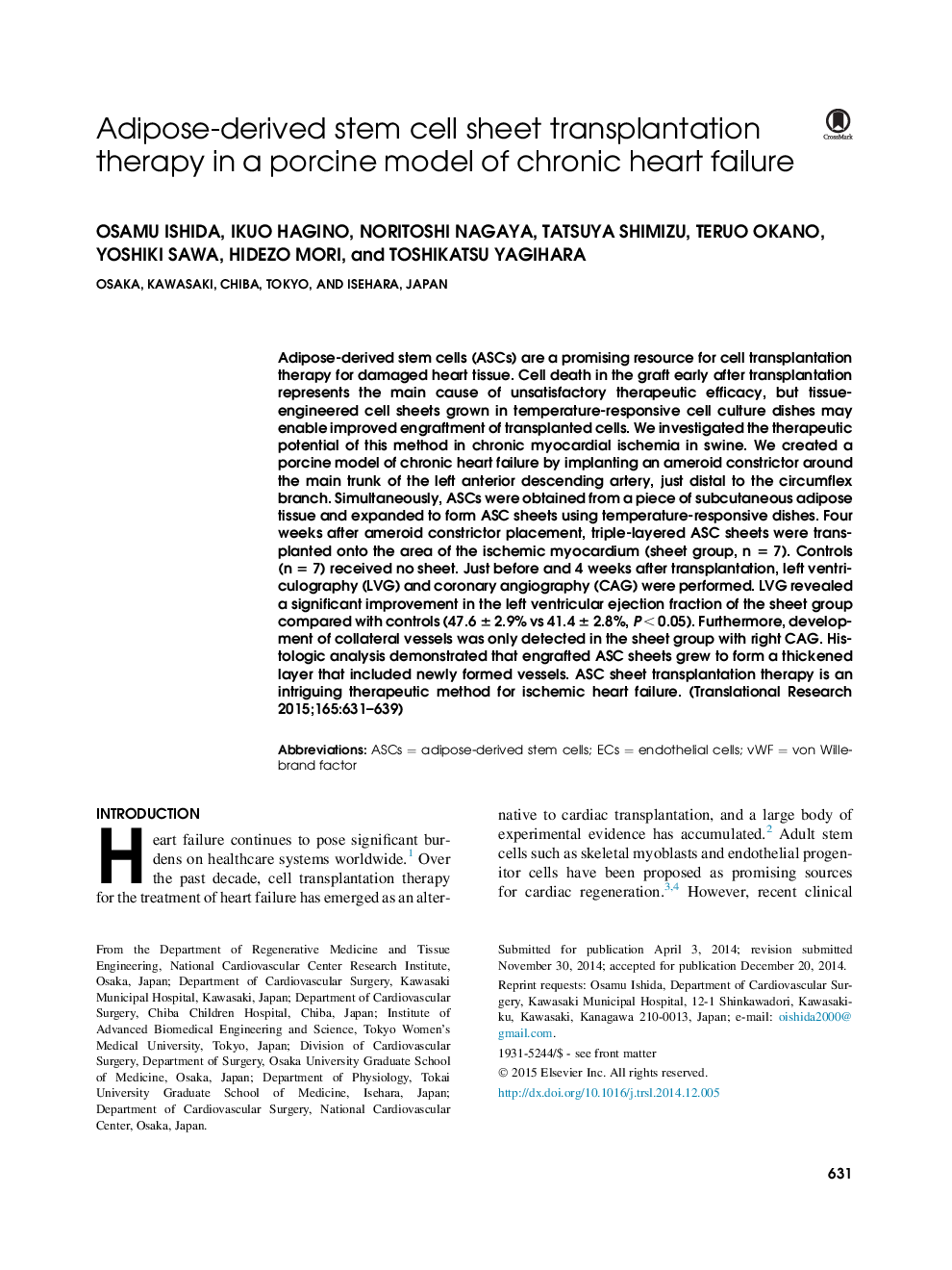| Article ID | Journal | Published Year | Pages | File Type |
|---|---|---|---|---|
| 3840425 | Translational Research | 2015 | 9 Pages |
Adipose-derived stem cells (ASCs) are a promising resource for cell transplantation therapy for damaged heart tissue. Cell death in the graft early after transplantation represents the main cause of unsatisfactory therapeutic efficacy, but tissue-engineered cell sheets grown in temperature-responsive cell culture dishes may enable improved engraftment of transplanted cells. We investigated the therapeutic potential of this method in chronic myocardial ischemia in swine. We created a porcine model of chronic heart failure by implanting an ameroid constrictor around the main trunk of the left anterior descending artery, just distal to the circumflex branch. Simultaneously, ASCs were obtained from a piece of subcutaneous adipose tissue and expanded to form ASC sheets using temperature-responsive dishes. Four weeks after ameroid constrictor placement, triple-layered ASC sheets were transplanted onto the area of the ischemic myocardium (sheet group, n = 7). Controls (n = 7) received no sheet. Just before and 4 weeks after transplantation, left ventriculography (LVG) and coronary angiography (CAG) were performed. LVG revealed a significant improvement in the left ventricular ejection fraction of the sheet group compared with controls (47.6 ± 2.9% vs 41.4 ± 2.8%, P < 0.05). Furthermore, development of collateral vessels was only detected in the sheet group with right CAG. Histologic analysis demonstrated that engrafted ASC sheets grew to form a thickened layer that included newly formed vessels. ASC sheet transplantation therapy is an intriguing therapeutic method for ischemic heart failure.
